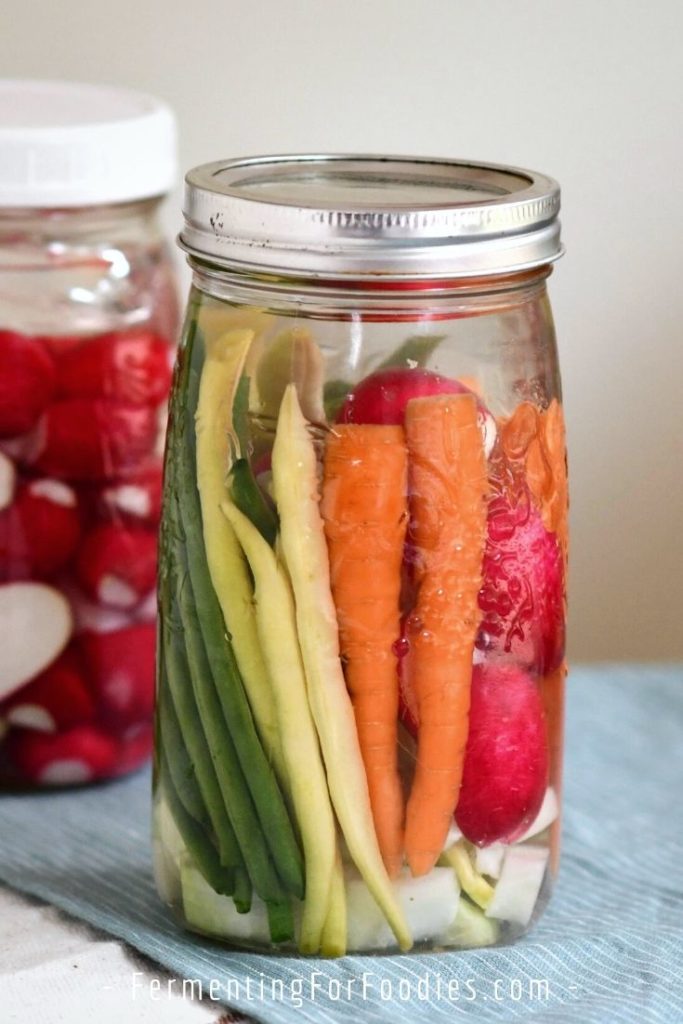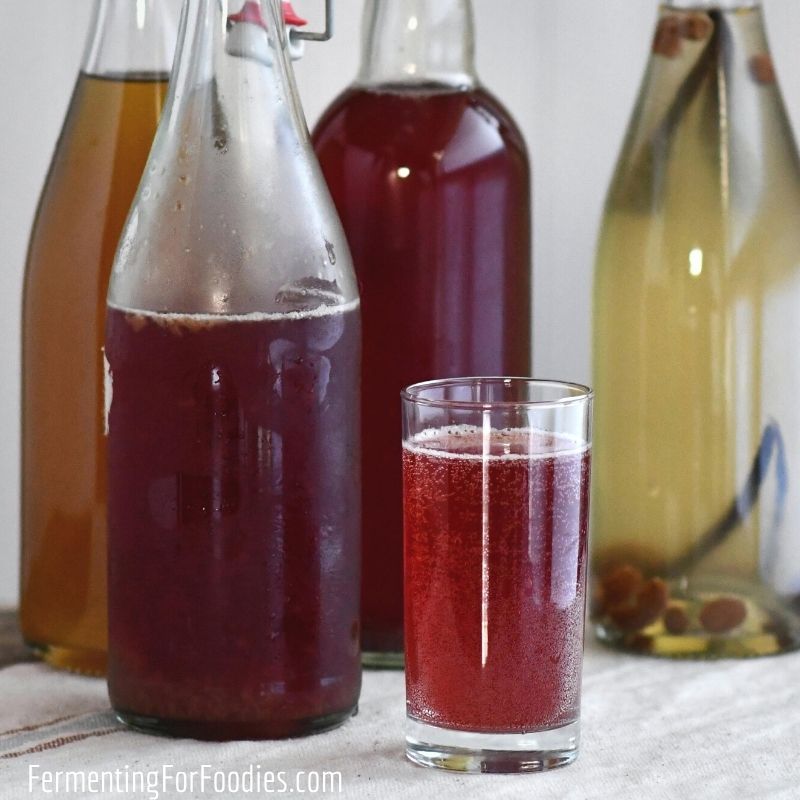Fermentation is the ultimate form of slow cooking. In our high-speed culture, it’s hard to devote time and energy to something that can take weeks or even months to complete. Yet, fermented foods are increasingly popular. Here are some of the benefits of fermented foods and beverages.

1. Amazing flavor
Fermented foods are packed full of flavor. And it’s that unique richness that makes fermented foods and beverages an essential part of most cuisines.
Here are a few examples of fermented foods that really add flavor to a meal:
For anyone wanting a deeper dive into flavor pairing with ferments, here’s a post about how to use fermented foods to add flavor to your meal.
2. Food preservation
Before there was refrigeration, fermentation was essential for food preservation.
Fermentation is still a low-cost and energy-efficient way to preserve seasonal foods, especially if you are lucky enough to have a cold room.
Even without cool storage, making pickles, sauerkraut, and hot sauce is a great way to preserve your garden. And fermenting milk is handy when you don’t have access to refrigeration. It’s why I always take milk kefir grains on a camping trip.

3. Probiotics!
Probiotics are probably what most people think of as the primary benefit of fermented foods and beverages. And improving gut health and wellness probably is the main reason why people start making their own fermented foods.
The health of our microbiome does play a key role in everything from helping us digest food to mood regulation. All it takes is one dose of antibiotics to mess up with this system.
Of course, you could buy a good probiotic supplement, but eating fermented foods is cheaper and tastier. Best of all, fermenting in your kitchen will improve the natural flora within your home. It’s the best way to get a dose of probiotics on your skin and in your lungs.
4. Improved digestion
Beyond the benefits associated with probiotics, fermented foods can directly help with food sensitivities.
- People with lactose intolerance are more likely to be able to tolerate fermented dairy products.
- Tempeh mold turns soybeans into an easily digestible complete protein.
- Pre-fermenting grains breaks down some of the complex carbs and starches making them easier to digest. So, if grains leave you feeling heavy, try prefermenting with sourdough or buttermilk.

5. Zero Waste
Fermentation is a delicious way to go zero waste.
- Ditch the pop can habit with homemade soda pop.
- Fermented condiments can last for months in the fridge without preservation.
- Fermenting is an easy and electricity-free way to preserve vegetables.
6. Slow Satisfaction
Our lives are full of text, emails, work, fun, and chores. We are living in a time of Everythingism, which leaves us with very little time for reflection and relaxation.
Fermentation is a slow process that forces us to take a break from our fast-paced lives. Stirring a sourdough starter and watching wine bubble is part of the daily rhythm of culturing food. While the individual tasks don’t take much time, they do provide long-term enjoyment.
Trust me. Opening a jar of homemade sauerkraut is so much more satisfying than simply dashing off to the store to buy some.

Leave a Reply